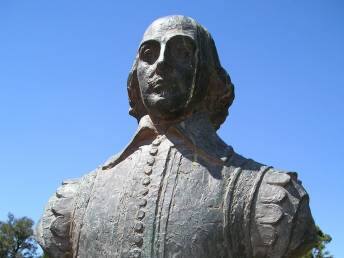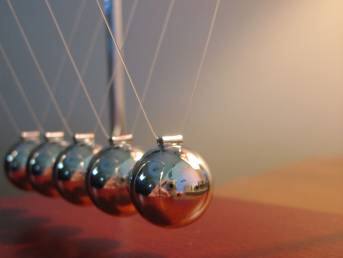



“I would rather sit on a pumpkin and have it all to myself, than be crowded on a velvet cushion.” Henry David Thoreau, 19th century American essayist and philosopher, said this two centuries before a novel virus prompted the rallying cry of ‘social distancing’ and ‘isolation’. Thoreau did not know social distancing, a term first used in 2003, but in this age of despair, sitting alone on a pumpkin suddenly does not seem preposterous at all. No breath sharing, no butt-butting as on that crowded velvet cushion.
Isolation is the new life mood and solitude the new social expression. While ‘social’ people are learning to embrace isolation and distancing, let’s look at the joys - and creativity - of being isolated and at writers/artists who chose solitude.

William Shakespeare: The bard was an actor and stakeholder in The King’s Men theatre group but when the plague ravaged England, all theatres closed doors in 1606. With no steady job and a lot of free time in hand, Shakespeare is said to have written King Lear, Macbeth, and Antony and Cleopatra during his plague isolation, though the last two plays were published only in 1623 in the First Folio.
Sir Isaac Newton: In 1665-66, the bubonic plague returned. Newton, then a student at Cambridge University, was forced to return home. He made two long visits to Woolsthorpe in order to escape the plague affecting Cambridge. It is said that Newton discovered the theory of universal gravitation during the plague isolation and much later stressed that these enforced absences were the most intellectually fruitful of his whole life: “For in those days I was in the prime of my age for invention & minded Mathematics & Philosophy more than at any time since”.
Nathaniel Hawthorne: Between his college graduation and the publication of his first collection of short stories, Nathaniel Hawthorne, famous for The Scarlet Letter (1850) and The House of the Seven Gables (1851), stayed in his room between morning and sunset, a solitary routine that continued for 12 long years.
Marcel Proust: Everyone knows of the brilliant French writer and his love for solitude. Proust holed himself in a cork-lined bedroom in Paris (the cork kept out the city’s noise) where he slept through the day and wrote at night. Writer Leon-Paul Fargue talked of Proust as looking “like a man who no longer lives outdoors or by day, a hermit who hasn't emerged from his oak tree for a long time.”
Igor Stravinsky: The Russian composer always closed the windows of his studio before he began composing. “I have never been able to compose unless sure that no one could hear me,” he famously said.
Pyotr Ilyich Tchaikovsky: This Russian composer equally loved his solitude. It is said that while composing he found any company “intolerable”.

Emily Dickinson: For two decades, poet Dickinson rarely stepped out of her family home in Massachusetts (USA), spoke to visitors through the door, lowered baskets from windows for packages. She did not attend her father’s funeral either - she listened to the funeral service in the garden via an open bedroom door.
Samuel Beckett: Beckett was a solitary man, with a circle of only 5 close friends. Between 1946 and 1950, Beckett took to a “the siege in the room” - he stayed in a room and wrote. And wrote more that resulted in the trilogy of novels – Molloy, Malone Dies and The Unnamable - which, taken together, are probably Beckett’s greatest works.
Albert Woodfox lived in isolation for 43 years. Convicted of killing a prison guard, he is the longest-standing solitary confinement prisoner in the United States.
Quotes on Solitude
Discover the latest Business News, Sensex, and Nifty updates. Obtain Personal Finance insights, tax queries, and expert opinions on Moneycontrol or download the Moneycontrol App to stay updated!
Find the best of Al News in one place, specially curated for you every weekend.
Stay on top of the latest tech trends and biggest startup news.